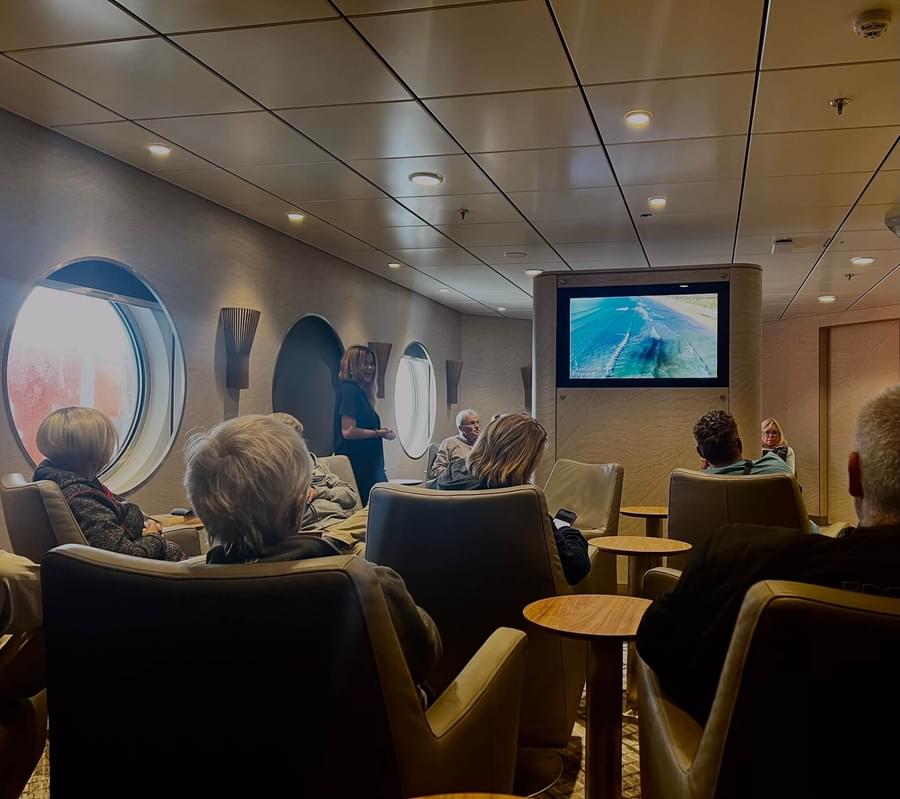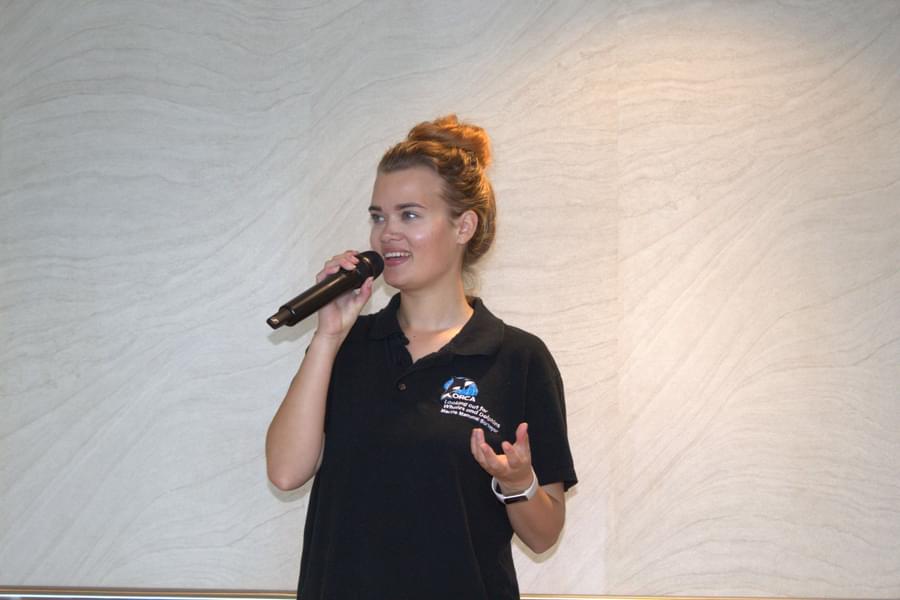Sit down, relax and find out why the sea can help your mental wellbeing...
This season, on board Brittany Ferries’ Santoňa, Ocean Conservationist Hannah developed ‘Whales and Whaleness’ – a talk which demonstrated the connection between mental health and the ocean. But why are we as humans so in awe of nature, and particularly our oceans? Why is it that we seem to have this unique, profound respect for the marine world? Is it because of its natural beauty or because we can relate to these animals on an emotional level? The truth is, we do in fact share numerous emotional similarities to our marine wildlife. Whales and dolphins have such strong social bonds and empathy levels that species such as orcas have been known to nurture potentially abandoned calves of a completely different species, and take them on as if they’re one of their own. Whales have even been recorded carrying deceased youngsters for days after the passing, grieving and mourning the loss. In addition, whales and dolphins use different vocalisations to express different emotions, much like humans do! However, whales and dolphins also do joy and fun, through acrobatic jumps and breaches, to playfulness. The similarities between human and cetacean emotions arguably enhance that connection to the natural world and wildlife.
Mental health impacts everyone. We all start out with acute mental health (i.e., healthy stress levels) but if not maintained accordingly, can progress into chronic mental health, leading further down the line of mental illness, including but not limited to depression and anxiety. But have you ever wondered why people suggest to ‘go get some fresh air’ or ‘go take a walk to clear your mind’, when you’re feeling low, or struggling with your mental health? Well, there’s actually scientific evidence to support the natural benefits this has on our mental well being. But more importantly, being by natural, running water particularly the ocean has shown to have the most positive impact - and personally, I (Hannah) couldn’t think of anywhere better to be.

And it all starts at the very beginning of human evolution! When humans first evolved, they relied heavily on the natural world for survival, including finding sources of food, water, shelter, weaponry, eventually even clothing. With time, this strong connection and appreciation for the natural world developed. In the 1980s, both Erich Fromm and Edward. O. Wilson discovered the Biophilia Hypothesis; a belief that there is an innate human tendency to develop a deep connection to the natural world. It links nicely to two other scientific theories: The Attention Restoration Theory (ART), and the Stress Reduction Theory (SRT).
ART suggests that those who spend less time outside, have a reduced ability to pay direct attention to daily tasks (i.e., work), whereas, those who spend more time in the natural world have an increased ability.. The act of being present outside allows our minds to relax and pay ‘soft attention’ to our surroundings, meaning we are not actively paying attention to things, but our minds are still gently picking up on things, such as the smells, breeze, sounds, etc.
Comparatively, SRT suggests that those who spend more time in the natural world have reduced stress levels, as the natural environment activates the parasympathetic nervous system. Our nervous system is split into two: the sympathetic nervous system (‘fight or flight’) and the parasympathetic nervous system (calm and relaxed). Therefore, having the natural world activate our parasympathetic nervous system, our ‘fight or flight’ is decreased, leaving us in a calmer frame of mind.

So it is strongly encouraged that if you, or someone you know is struggling with their mental health, or are even having a bit of a rough day, get outside! But don’t be disheartened if there’s not an immediate change, it’s a progressional development, just like a whale's social bond that strengthens with time. Be one with the natural world, close your eyes and listen to the sound of the waves crashing against one another, feel the sea breeze on your face as you breathe in that sea air.
If you need motivation to get outside and help yourself feel better, why not download the OceanWatchers App? If you’re by the sea, you could conduct a little cetacean survey; meaning you could be benefiting your mental wellbeing, and contributing to conservation at the exact same time! You can be one of ORCA’s Ocean Watchers and collect vital data to help us protect the whales and dolphins. And if you get those sightings of whales and dolphins to add into the survey and who knows, it may fill your day with happiness and joy; so get out there!
You can help yourself, contribute to conservation, and (hopefully) see whales and dolphins all at the same time. Nature’s therapy is right on your doorstep.

